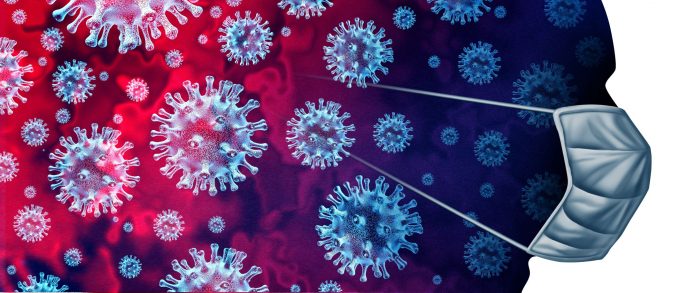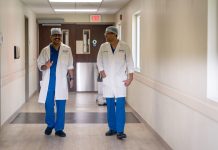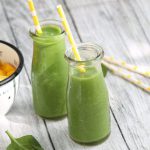A novel (new) coronavirus was first detected in late December in Wuhan City, Hubei Province, China and is causing an outbreak of respiratory disease in countries around the world. The disease has since been named coronavirus disease 2019 (abbreviated “COVID‑19”) by the World Health Organization.
The Cayman Islands Health Services Authority has prepared a section on their website devoted to coronavirus information, including the below.
What is coronavirus?
- Coronaviruses (CoV) comprise large family of viruses that cause illnesses ranging from the common to cold to more severe diseases such as Severe Acute Respiratory Syndrome (SARS-CoV).
- Coronaviruses are zoonotic, which means they are transmitted between animals and humans. An example of this is SARS-CoV, where the disease was transmitted from civet cats to humans.
- The novel coronavirus (2019-nCoV) is a new strain of corona virus that has not been previously identified in humans.
CORONAVIRUS (2019-nCoV)
What are the symptoms?
- Common symptoms include respiratory symptoms:
– fever – cough – shortness of breath – breathing difficulties - In severe cases of coronavirus can cause: – pneumonia – severe acute respiratory syndrome – kidney failure
How soon do symptoms occur?
Symptoms occur 2-10 days after a person has been exposed.
What is the global, regional, and local burden of coronavirus?
For the latest information on 2019-nCoV please refer to https://www.who.int/emergencies/diseases/novel-coronavirus-2019/situation-reports.
Is there a vaccine against coronavirus?
Yes. There are a few vaccines currently available worldwide.
How is coronavirus spread?
- While this strain of coronavirus is new, it appears to spread in a similar manner to that of other coronaviruses such as SARS, through cough and sneeze droplets.
- This occurs when an infected person sneezes or coughs directly on another person. The droplets are then transferred when the healthy person touches their nose or mouth.
- A person can also become ill if they touch surfaces where droplets have landed such as tables, chairs and door handles, then touch their nose or mouth. This route is dependent on the length of time the virus is able to survive on the surface.
- Some reports indicate that people who have not yet developed symptoms may also be able to infect others.
- It is important to remember coronaviruses are also able spread to people who come in contact with infected animals and livestock.
How is coronavirus diagnosed?
- Doctors suspect the possibility of coronavirus based on clinical symptoms and signs and one of the following criteria:
– The person who is experiencing a severe acute respiratory infection has recently travelled to a country that has reported a confirmed case of 2019-nCoV within the past 14 days.
– The person who is experiencing a severe acute respiratory infection has been in contact with another ill person who has travelled to a country that has reported a confirmed case of 2019-nCoV within the past 14 days.
– The person who is experiencing a severe acute respiratory infection has visited or worked in a live animal market in Wuhan, China within the past 14 days. - Confirmation obtained through a blood test. This form of testing is done by the Caribbean Public Health Agency, which takes five to ten days.
How do I reduce the risk of coronavirus infection?
It is recommended to practice infection control measures such as:
• frequent hand cleansing with soap and water or an alcohol-based hand sanitizer
• covering nose and mouth when coughing or sneezing
• avoiding close contact with people suffering from acute respiratory infections, and
• avoiding unprotected contact with farm or wild animals.
The Ministry of Health and the Public Health Department encourage you to share these coronavirus prevention tips with your loved ones.
Posted by The Cayman Islands Government on Friday, February 28, 2020
What should I do if I have coronavirus?
- While there is no specific treatment for 2019-nCoV, if you have recently travelled to a country experiencing an outbreak of coronavirus and develop symptoms suggestive of respiratory illness, seek medical attention immediately. Ensure that you provide your doctor with your recent travel history and symptoms.
- Wear a mask if available.
- Do not travel while you are ill, if possible.
- Treatment will be administered based upon your symptoms.
- Laboratory confirmation is not essential for the management of coronavirus cases.
If you think you have, or have been exposed to the virus please call the 24 hour Flu hotline on 1-800-534-8600 or 345-947-3077 or email [email protected].
CIGTV has also added coronavirus information including interviews with Acting Port Director Joey Woods, the Acting Deputy Governor, Director of Hazard Management, and Chief Medical Officer. These are available here: https://youtu.be/wtlEumKDKFs.
For further information: Contact the Public Health Department 244-2621
For medical attention: Contact the Cayman Islands Health Services Accident and Emergency Unit 244-2794 or 244-2792








